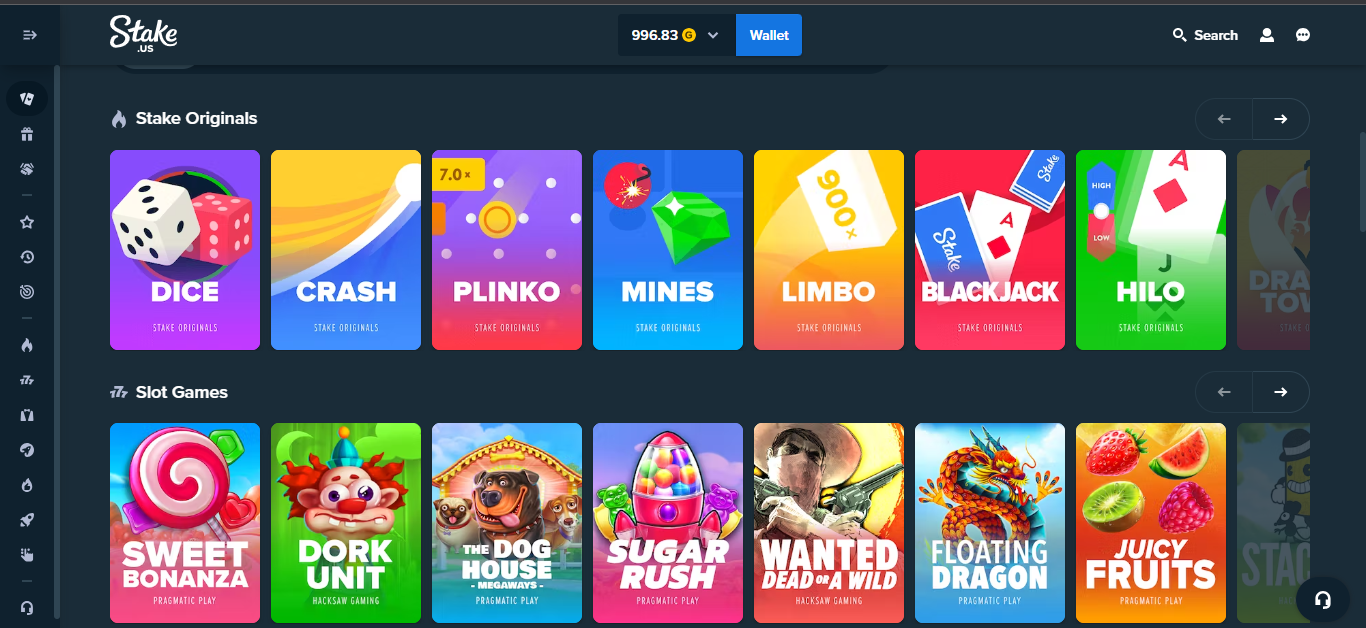- Erlebe unvergessliche Momente im vinci spin casino, wo jede Runde neue Chancen auf große Gewinne eröffnet!
- Vielfältige Spielangebote im vinci spin casino
- Die beliebtesten Spielautomaten
- Tischspiele für Strategen
- Die Atmosphäre im vinci spin casino
- Das Design des Casinos
- Freundlicher Kundenservice
- Bonusprogramme und Aktionen
- Wie funktionieren die Bonusprogramme?
- Tipps zur optimalen Nutzung von Bonusaktionen
- Verantwortungsvolles Spielen im vinci spin casino
- Hilfsangebote für Spieler
- Selbstbeschränkungen und Setzung von Grenzen
- Der Weg zu großen Gewinnen im vinci spin casino
- Die Bedeutung von Glück und Strategie
- Technologischer Fortschritt im vinci spin casino
- Mobile Spiele und Apps
- Neue Features und Innovationen
Erlebe unvergessliche Momente im vinci spin casino, wo jede Runde neue Chancen auf große Gewinne eröffnet!
Das vinci spin casino ist ein aufregender Ort, der mit einem vielfältigen Angebot an Spielmöglichkeiten und einer einladenden Atmosphäre begeistert. Ob Sie ein erfahrener Spieler sind oder gerade erst anfangen, in die Welt der Casinos einzutauchen, hier finden Sie alles, was das Herz begehrt. Die Kombination aus modernster Technologie und traditionellem Casino-Flair macht jeden Besuch zu einem unvergesslichen Erlebnis. In diesem Artikel möchten wir die wichtigsten Aspekte des vinci spin casinos beleuchten und Ihnen helfen, die besten Entscheidungen für Ihre Spielsession zu treffen.
Ein zentraler Aspekt, der das vinci spin casino auszeichnet, ist die große Auswahl an Spielen. Von klassischen Tischspielen wie Blackjack und Roulette bis hin zu den neuesten Slot-Maschinen erwartet die Gäste eine abwechslungsreiche Palette, die spannende Unterhaltung verspricht. Darüber hinaus bieten oft auch Live-Casino-Spiele die Möglichkeit, in Echtzeit gegen echte Dealer zu spielen, was das Spielerlebnis zusätzlich verbessert.
Ein weiterer wichtiger Faktor ist die Atmosphäre des Casinos. Das vinci spin casino legt großen Wert darauf, seinen Gästen ein angenehmes Umfeld zu bieten, in dem sie sich entspannen und Spaß haben können. Freundliches Personal, stilvolles Design und eine Vielzahl kulinarischer Angebote tragen dazu bei, dass Besucher sich willkommen fühlen und immer wieder zurückkehren.
Das vinci spin casino hat sich zudem hervorragend auf die Bedürfnisse seiner Kunden eingestellt. Attraktive Bonusprogramme und Aktionen sorgen dafür, dass sowohl neue als auch regelmäßige Spieler von zusätzlichen Vorteilen profitieren können. Somit lässt es sich umso besser gewinnen, und die Chancen auf große Gewinne steigen.
In den kommenden Abschnitten werden wir verschiedene Aspekte des vinci spin casinos näher beleuchten, um Ihnen ein umfassendes Bild zu vermitteln. Von den verschiedenen Spielangeboten über die Atmosphäre bis hin zu den Bonusprogrammen – hier erfahren Sie alles, was Sie über dieses beeindruckende Casino wissen müssen.
Vielfältige Spielangebote im vinci spin casino
Im vinci spin casino erwartet die Spieler eine breite Palette hochwertiger Spiele, die für jeden Geschmack etwas bieten. Die Auswahl reicht von traditionellen Casino-Klassikern bis zu modernen Video-Slots. Besonders beliebt sind Spielautomatenspiele, die mit aufregenden Grafiken, fesselnden Themen und lukrativen Jackpot-Möglichkeiten aufwarten.
Die Casino-Klassiker wie Blackjack, Roulette und Poker bieten Spielern die Möglichkeit, ihre Strategien auszutesten und gegen andere Spieler anzutreten. Die verschiedenen Spielvarianten stellen sicher, dass sowohl Gelegenheitsspieler als auch erfahrene Zocker genügend Optionen zur Auswahl haben.
| Spielautomaten | Starburst, Book of Dead | Hohe Gewinnchancen und aufregende Boni |
| Tischspiele | Blackjack, Roulette | Traditionelles Casino-Flair mit Strategiemöglichkeiten |
| Live-Casino | Live Roulette, Live Blackjack | Interaktive Spielerfahrung mit echten Dealern |
Die Einführung neuer Spiele und regelmäßige Updates der bestehenden Spielpalette helfen dabei, die Spieler zu begeistern und neue Gäste zu gewinnen. Die ständige Weiterentwicklung sorgt dafür, dass das vinci spin casino immer an der Spitze der Casino-Welt bleibt.
Die beliebtesten Spielautomaten
Spielautomaten sind im vinci spin casino besonders beliebt und kommen in vielen verschiedenen Variationen vor. Sie erfreuen sich großer Beliebtheit, da sie einfach zu bedienen sind und oft die Chance auf hohe Gewinne bieten. Zudem gibt es viele verschiedene Themen und Grafiken, die das Spielerlebnis bereichern.
Zu den beliebtesten Spielautomaten gehören Klassiker wie *Starburst* und *Book of Dead*, die sowohl Anfänger als auch erfahrene Spieler anziehen. Diese Spiele zeichnen sich durch ihre aufregenden Features und großen Jackpot-Möglichkeiten aus.
Tischspiele für Strategen
Zu den Tischspielen im vinci spin casino gehören Klassiker wie Blackjack und Roulette. Diese Spiele erfordern oft eine gewisse Strategie und bieten den Spielern die Möglichkeit, ihre Fähigkeiten unter Beweis zu stellen. Die verschiedenen Varianten dieser Spiele sorgen dafür, dass es stets spannend bleibt und keine Langeweile aufkommt.
Besonders Blackjack hat viele Anhänger, da die Spieler durch Geschicklichkeit und Strategie ihre Gewinnchancen erhöhen können. Roulette hingegen zieht Spieler mit seinen lebhaften Tischspielen und den vielfältigen Wettmöglichkeiten an.
Die Atmosphäre im vinci spin casino
Die Atmosphäre im vinci spin casino ist ebenso wichtig wie das Spielangebot. Ein erfolgreiches Casino sorgt für ein angenehmes Ambiente, in dem sich die Spieler wohlfühlen können. Die Gestaltung des Innenraums, die Beleuchtung und die Anordnung der Spiele tragen zu einer einladenden Atmosphäre bei.
Die Kombination aus modernem Design und klassischen Elementen schafft ein einzigartiges Erlebnis, das Besucher begeistert. Zudem spielt das Personal eine entscheidende Rolle – stets freundlich und hilfsbereit, sorgt es dafür, dass sich die Spieler rundum wohlfühlen.
Das Design des Casinos
Das Design des vinci spin casinos ist stilvoll und durchdacht. Unterschiedliche Bereiche sind klar voneinander getrennt, sodass die Spieler sich leicht zurechtfinden. Die Auswahl an komfortablen Sitzmöglichkeiten und eine angenehme Beleuchtung fördern die Entspannung und das Genuss der Spiele.
Das moderne Ambiente trägt dazu bei, dass sich die Besucher auf die Spiele konzentrieren und gleichzeitig die Atmosphäre genießen können.
Freundlicher Kundenservice
Der Kundenservice im vinci spin casino ist stets bemüht, den Gästen bestmöglich zur Seite zu stehen. Ob es um Anfragen, technische Probleme oder Tipps zu den Spielen geht – das Personal ist gut geschult und hilfsbereit. Dies führt zu einem positiven Erlebnis für die Spieler und sorgt dafür, dass sie gerne wiederkommen.
In einer Branche, in der der Kundenservice oft entscheidend ist, sticht das vinci spin casino durch seine herausragende Betreuung hervor.
Bonusprogramme und Aktionen
Im vinci spin casino erwarten Spieler zahlreiche Boni und Aktionen, die es ihnen ermöglichen, von zusätzlichen Vorteilen zu profitieren. Diese Programme sind ein wesentlicher Bestandteil der Casino-Kultur und sorgen dafür, dass die Spieler ihr Spielbudget erweitern und ihre Gewinnchancen erhöhen können.
Neue Spieler können oft von attraktiven Willkommensboni profitieren, die ihnen helfen, ihre ersten Schritte im Casino zu wagen. Darüber hinaus gibt es regelmäßige Werbeaktionen für Bestandskunden, die den Anreiz erhöhen, aktive Spieler zu bleiben.
- Willkommensbonus: Attraktive Boni für Neukunden bei der ersten Einzahlung
- Treueprogramm: Belohnungen für regelmäßige Spieler und VIP-Mitgliedschaften
- Wöchentliche Aktionen: Regelmäßige Angebote, die die Spieler anregen
Diese Boni können in Form von Freispielen, zusätzlichen Einzahlungsguthaben oder Cashback-Angeboten erteilt werden und bieten den Spielern die zusätzlich nötige Motivation, ihr Glück zu versuchen. So wird jede Runde im vinci spin casino zu einem noch aufregenderen Erlebnis.
Wie funktionieren die Bonusprogramme?
Die Bonusprogramme im vinci spin casino sind so gestaltet, dass sie einfach zu verstehen und zu nutzen sind. In der Regel muss der Spieler eine bestimmte Aktion ausführen, um den Bonus zu erhalten – wie zum Beispiel die erste Einzahlung oder das Spielen einer bestimmten Anzahl von Runden.
Die genauen Bedingungen für die Boni sind transparent und jederzeit einsehbar, sodass die Spieler genau wissen, welche Anforderungen erfüllt werden müssen, um von den Angeboten profitieren zu können.
Tipps zur optimalen Nutzung von Bonusaktionen
Um das Maximum aus den Bonusangeboten im vinci spin casino herauszuholen, sollten Spieler die Bonusbedingungen genau lesen und verstehen. Oft sind dort Mindestumsatz und andere Vorgaben festgelegt, die es zu beachten gilt.
Einige allgemeine Tipps sind, dass man die richtigen Spiele auswählt, die zur Erfüllung der Bonusbedingungen zählen, und sich die Zeit nimmt, um strategisch vorzugehen. So können die Boni optimal genutzt werden.
Verantwortungsvolles Spielen im vinci spin casino
Verantwortungsvolles Spielen ist ein wichtiger Aspekt, den jedes Casino ernst nimmt. Das vinci spin casino hat sich verpflichtet, seinen Spielern zu helfen, ein gesundes Spielverhalten zu fördern und problematisches Spielen zu vermeiden. Aufklärung und Unterstützung sind entscheidend, um sicherzustellen, dass die Spieler die Kontrolle über ihr Spielverhalten behalten.
Das Casino bietet Ressourcen und Hilfestellungen für Spieler, die möglicherweise Schwierigkeiten im Umgang mit Glücksspielen haben. Diese Dienstleistungen sollen nicht nur dem Einzelnen helfen, sondern auch das Bewusstsein für das Thema Spielsucht zu schärfen.
Hilfsangebote für Spieler
Im vinci spin casino stehen verschiedene Hilfsangebote zur Verfügung, die im Falle von Schwierigkeiten genutzt werden können. Dazu zählen unter anderem Kontaktinformationen für Beratungsstellen und Selbsthilfegruppen, die Betroffenen Unterstützung bieten können.
Das Casino organisiert regelmäßig Veranstaltungen und Schulungen, um Spieler zum verantwortungsvollen Spielen zu animieren und um auf die Risiken von exzessivem Glücksspiel aufmerksam zu machen.
Selbstbeschränkungen und Setzung von Grenzen
Um verantwortungsvolles Spielen zu fördern, besteht die Möglichkeit, persönliche Limits zu setzen. Spieler können selbst festlegen, wie viel sie einsatzbereit sind zu verlieren oder maximal spielen wollen. Dieses Feature hilft, die Kontrolle über das eigenes Spielverhalten zu behalten und ein übermäßiges Risiko zu vermeiden.
Ein solches System ermöglicht es den Spielern, sicherer und bewusster zu spielen, was zu einem allgemein positiveren Spielerlebnis führt.
Der Weg zu großen Gewinnen im vinci spin casino
Das vinci spin casino bietet zahlreiche Möglichkeiten, um große Gewinne zu erzielen. Mit einer Kombination aus Glück, Geschick und den richtigen Strategien können Spieler ihr Spielerlebnis erheblich verbessern. Dabei ist es wichtig, einen kühlen Kopf zu bewahren und die Veränderungen im Spielverlauf konstruktiv zu nutzen.
Die Auswahl der Spiele kann sich erheblich auf die Gewinnchancen auswirken. Spieler sollten sich über die verschiedenen Spiele und deren Auszahlungsquoten informieren, um die besten Entscheidungen zu treffen. Einige Spiele bieten höhere Auszahlungsraten als andere und sind daher attraktiver für diejenigen, die auf der Suche nach großen Gewinnen sind.
- Informieren Sie sich über die Spiele: Erfahren Sie mehr über die verschiedenen Spiele, um eine informierte Entscheidung zu treffen.
- Nutzen Sie Bonusangebote: Profitieren Sie von den zusätzlichen Anreizen, die Ihnen helfen, mehr zu gewinnen.
- Setzen Sie Limits: Legen Sie persönliche Grenzen fest, um verantwortungsvoll zu spielen und übermäßige Verluste zu vermeiden.
Indem man sich konsequent an diese Tipps hält, kann man seine Spielweise im vinci spin casino optimieren und die Chancen auf Gewinne maximieren. Das Glück lächelt denjenigen, die strategisch und überlegt spielen.
Die Bedeutung von Glück und Strategie
Eine ausgewogene Kombination aus Glück und strategischem Denken ist entscheidend, um im vinci spin casino erfolgreich zu sein. Zwar kann niemand das Glück beeinflussen, aber durch kluges Spielen und Wahl der richtigen Spiele können die Chancen erheblich verbessert werden.
Strategien für die Tischspiele wie Blackjack erfordern Übung und Geduld, während Spielautomaten auf Zufall basieren. Das Verstehen dieser Konzepte ist entscheidend für den Spielstil eines jeden Teilnehmers.
Technologischer Fortschritt im vinci spin casino
Das vinci spin casino setzt auf moderne Technologie, um seinen Spielern das bestmögliche Erlebnis zu bieten. Die fortschrittlichen Spielautomaten sind mit innovativen Features ausgestattet, die das Spiel aufregender und unterhaltsamer gestalten. Auch die Software, die für Tischspiele und das Live-Casino verwendet wird, ist von höchster Qualität.
Dank dieser technologischen Fortschritte können Besucher sicher und bequem von ihrem eigenen Zuhause aus spielen. Online-Spiele sind eine wichtige Ergänzung zum physischen Casino-Besuch und bringen das Casino-Erlebnis direkt zu den Spielern.
Mobile Spiele und Apps
Die Entwicklung mobiler Spiele und Apps hat das vinci spin casino revolutioniert. Spieler können nun überall und jederzeit auf ihre Lieblingsspiele zugreifen. Diese Flexibilität ermöglicht es den Spielern, das Casino-Erlebnis während der Pausen oder auf Reisen zu genießen.
Die mobiler Plattform ist benutzerfreundlich gestaltet und bietet ein umfassendes Angebot, das kaum Wünsche offenlässt. Die Spiele sind speziell für mobile Geräte optimiert, sodass sie flüssig und schnell laufen.
Neue Features und Innovationen
Das vinci spin casino engagiert sich fortlaufend, um neue Features und Innovationen zu implementieren. Dazu zählen unter anderem exklusive Bonusaktionen, saisonale Veranstaltungen und interaktive Spiele, die den Spielspaß erhöhen.
Dank dieser ständigen Weiterentwicklung bleibt das Casino attraktiv für neue Spieler und bietet gleichzeitig Anreize für Stammgäste, zurückzukehren.
Insgesamt bietet das vinci spin casino ein unvergleichliches Spielerlebnis mit einer Vielzahl von Möglichkeiten zur Unterhaltung und zum Gewinnen. Durch die Kombination aus hochwertigem Service, innovativen Spielen und einer einladenden Atmosphäre bleibt das Casino ein Favorit unter Glücksspiel-Enthusiasten.
Durch die hier vorgestellten Aspekte wird deutlich, dass das vinci spin casino nicht nur ein Ort des Glücksspiels ist, sondern vielmehr eine Destination, die für jeden Besucher etwas zu bieten hat. Egal, ob Sie ein Neuling oder ein erfahrener Spieler sind, hier finden Sie die passenden Angebote und eine positive Atmosphäre, die zu unvergesslichen Momenten einladen.























